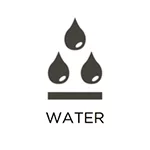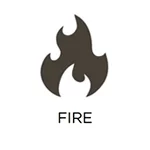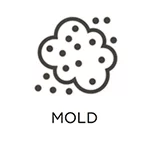RestorationMaster
Sewage backup is a common and unpleasant issue that can occur in homes and buildings. It happens when the sewage system becomes overloaded or blocked, causing wastewater to back up into sinks, toilets, and drains. This can result in significant damage to the property and pose health risks to those living or working in the affected space.
Sewage backup is often caused by a variety of factors, including tree roots invading the pipes, clogs from items being flushed down the toilet, or heavy rainfall overwhelming the sewage system. Regardless of the cause, it is important to address sewage backup as quickly as possible to minimize damage and prevent health hazards.
RestorationMaster is available 24/7 in Chatham, NJ, to provide sewage cleanup services for homes and buildings. Our IICRC-certified professionals are fully equipped to extract all sewage water and use advanced products and equipment to safely restore the affected area.
Types of Sewage Water
There are three types of sewage-contaminated water, each classified by the level of contamination and associated health risks:
- Category 1 (Clean Water): This water originates from clean sources like broken water supply lines or tub overflows with no contaminants initially present. It poses the least immediate risk but can escalate if not addressed promptly.
- Category 2 (Gray Water): Gray water contains some level of contaminants that could cause discomfort or illness if ingested or exposed to skin. Examples include water from washing machines or dishwashers. It requires proper handling and cleanup to prevent further contamination.
- Category 3 (Black Water): This is the most hazardous type, heavily contaminated with pathogens, toxins, or other harmful substances. It comes from sewage backups, floodwaters, or stagnant sources. Category 3 water poses severe health risks and demands immediate professional intervention for safe cleanup and disinfection.
Our Sewage Cleanup and Sanitation Process in Chatham, NJ
Our sewage cleanup services in Chatham, NJ include:
- 24/7 availability and emergency response
- Water extraction
- Disinfection and cleaning using EPA registered antimicrobials
- Structural drying of flooded and wet items and furniture
- Restoration and repairs within the affected area
- Biohazard cleanup, including replacement of damaged contents, carpets, rugs, drywall materials, and debris.
- Odor removal
- Demolition of drywall and other affected building materials
For Professional Sewage Cleaning, Call RestorationMaster
RestorationMaster will handle billing directly with your insurance company, easing the financial burden during this challenging time. Whether you need cleaning from toilet and sewer backups or cleaning after flooding caused by severe weather, such as heavy rain or groundwater flooding your basement, you can trust our experts.
For sewage cleanup services in the Chatham, NJ area, contact RestorationMaster at 973-685-3117. We are available 24/7 and provide free estimate.
Why and How People Choose a Local Contractor After a Home Disaster?
Related Sewage Cleanup Services
Sewage Backup Cleaning in Morristown, NJ
Sewage Cleaning Company in Mount Olive, NJ
Sewage Removal in Sparta, NJ
Sewage Backup Cleaning Services in Randolph, NJ
Sewage Cleaning Professionals in Montville, NJ
Black Water Removal in Parsippany, NJ
Sewage Services in Jefferson, NJ
Sewage Removal Services in Rockaway, NJ
Helpful Information on Sewage Cleanup
How to cleanup sewage backup?
Depending on how serious the situation is, you might have ways to lessen the damage, rescue your belongings, or manage the issue on your own. However, keep in mind that sewage cleanup can be physically demanding and risky, so only attempt it if the spill is small and easy to handle. Read on how you can handle sewage backup at home.
How to safely clean toilet overflows?
Toilet overflows that result in wastewater spills are highly contaminated. This type of wastewater, classified as black water, is the most toxic among the three categories of floodwater. Even though wastewater is primarily water (99.9 percent), homeowners should be concerned about the remaining 0.1 percent of the toilet overflow. Explore some recommendations on how to prevent and safely manage toilet overflows.
Dangers of stagnant water & how to remove it?
Stagnant water occurs when water accumulates inside or outside your home. Typically, outdoor water will seep into the ground. However, indoor stagnant water can linger for days or weeks, leading to mold growth and unpleasant odors. It’s crucial to eliminate stagnant water promptly to prevent additional damage. The sooner you remove it, the better your chances of salvaging carpeting, drywall, and wooden items. Our restoration professionals have outlined various methods for safely removing this hazardous water.
Frequently Asked Questions
How long does a landlord have to fix sewage backup?
In New Jersey, the law for landlords and tenants doesn’t give an exact time frame for fixing problems in rental units. However, usually, sewage issues are taken care of within 7–14 days. If a landlord doesn’t address the problem promptly, tenants can handle the repairs themselves and deduct the costs from their rent.
Does home insurance cover sewage backup?
While your homeowners insurance protects against some unexpected water damage, it usually doesn’t cover water back-ups and sump pump overflows. However, you have the option to purchase additional water back-up coverage, which can compensate for damages resulting from sewage back-ups or malfunctioning sump pumps.
Is sewage backup an emergency?
Yes, Sewage backup is an emergency because it contains harmful pathogens and bacteria that can cause serious health issues if not handled immediately. Additionally, the connection between household pipes and sewer lines means it can contaminate water sources, leading to further problems.
How to clean sewage backup in basement?
Here are some simple steps to clean sewage backup in the basement:
- Wear protective gear like gloves, goggles, and a mask.
- Turn off your home’s main water supply to stop sewage flow.
- Use a wet vacuum or mop to clear standing water.
- Throw away anything touched by sewage that can’t be cleaned.
- Scrub surfaces with hot water and disinfectant.
- Open windows and use fans to help dry the area.
- Call RestorationMaster for an emergency situation




